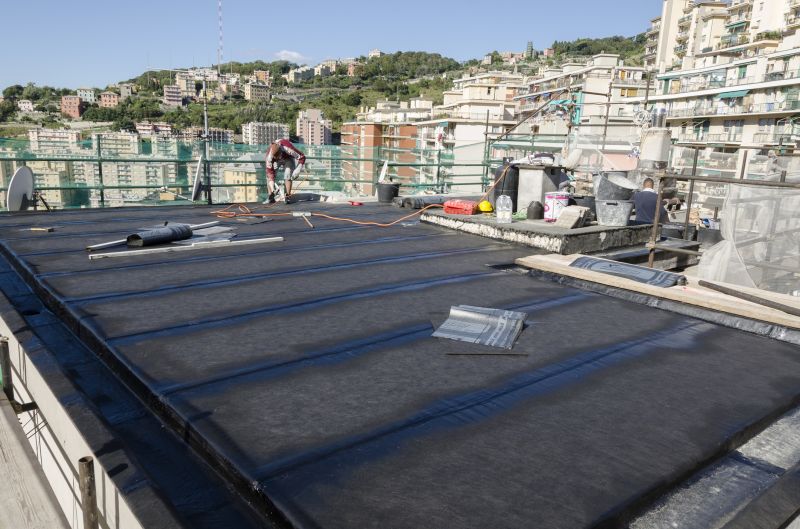Expert Picks for Roofing Service Supplies to Elevate Your Work Quality
Choose from a curated list of essential products that support craftsmanship and safety in roofing projects.
 In Nottingham, MD, maintaining and repairing roofs requires a diverse range of products tailored to various tasks and conditions. From basic repairs to extensive installations, professionals and DIY enthusiasts alike need reliable tools and materials to ensure safety and durability. Roofing products encompass a wide spectrum, including protective coverings, sealing solutions, and specialized tools designed to facilitate efficient work. Selecting the right products can significantly impact the quality and longevity of roofing projects, making it essential to understand the options available.
In Nottingham, MD, maintaining and repairing roofs requires a diverse range of products tailored to various tasks and conditions. From basic repairs to extensive installations, professionals and DIY enthusiasts alike need reliable tools and materials to ensure safety and durability. Roofing products encompass a wide spectrum, including protective coverings, sealing solutions, and specialized tools designed to facilitate efficient work. Selecting the right products can significantly impact the quality and longevity of roofing projects, making it essential to understand the options available.
Top Overall Option
Roofing Underlayment
Roofing underlayment is a critical component that provides an additional layer of protection beneath shingles or other roofing materials. It acts as a barrier against moisture, wind-driven rain, and minor leaks, helping to extend the lifespan of the roof. Available in various materials such as synthetic, felt, or rubberized membranes, underlayments are selected based on the specific needs of the project and local climate conditions. Proper installation of underlayment can enhance the overall durability of the roofing system and contribute to the building's structural integrity.
Types of Products For Roofing Service
Asphalt Shingles
A popular roofing material known for its affordability and ease of installation, asphalt shingles come in various styles and colors suitable for different aesthetic preferences.
Metal Roofing Panels
Metal panels offer durability and longevity, with options including standing seam, corrugated, and metal tiles designed for various architectural styles.
Roofing Nails and Fasteners
Specialized nails and fasteners are essential for securing roofing materials, available in different sizes and coatings to match specific roofing types.
Roofing Sealants and Adhesives
Sealants and adhesives help ensure watertight seals around flashing, vents, and seams, preventing leaks and enhancing roof integrity.
Flashing and Metal Trim
Metal flashing and trim are used to direct water away from critical areas such as valleys, chimneys, and roof edges, providing essential waterproofing.
Roofing Safety Harnesses
Safety harnesses and fall protection gear are crucial for protecting workers during roofing installation and maintenance tasks.
Ladders and Scaffolding
Proper ladders and scaffolding systems provide safe access to rooftops, supporting efficient and secure work environments.
Roof Ventilation Products
Vents and ridge caps facilitate proper attic ventilation, helping to regulate temperature and moisture levels inside the building.
Roofing Membranes
Flexible membranes are used in flat roofing systems to provide waterproofing and weather resistance for commercial and industrial buildings.
Insulation Materials
Insulation enhances energy efficiency and can protect the roof structure from temperature fluctuations and moisture buildup.
Gutter Systems
Gutters and downspouts are vital for directing rainwater away from the building foundation, preventing water damage.
Skylights and Roof Windows
These products add natural light to interior spaces while requiring proper sealing and flashing for weatherproofing.
Popular Choices
A common choice for residential roofing, appreciated for its versatility and ease of installation.
Known for durability and modern aesthetic appeal, suitable for various building types.
Essential for securing shingles and other roofing materials, available in different finishes.
Used to seal seams, flashing, and vents, helping to prevent leaks.
Provides an extra layer of protection beneath primary roofing materials.
Facilitate attic airflow, contributing to temperature regulation.
A fundamental tool for safe access during roofing projects.
Support fall protection for workers on rooftops.
Help waterproof critical roof junctions and edges.
Manage rainwater runoff effectively to protect the building foundation.
Ideal for flat roofing systems requiring waterproofing.
Enhance thermal performance and energy efficiency.
Introduce natural light into interior spaces with proper sealing.
Quality roofing materials are crafted to withstand local weather conditions and provide long-lasting protection. These include different types of shingles, membranes, and underlayments that serve as the first line of defense against the elements. Complementing these are tools such as roofing nailers, safety harnesses, and ladders, which enhance both safety and efficiency during installation or repairs. Proper selection and use of these products can help ensure that roofing projects are completed safely and effectively.
For professionals operating in Nottingham, MD, having access to a comprehensive range of roofing products is vital. Whether working on residential or commercial properties, the right tools and materials can streamline processes and improve outcomes. It is also important to consider factors like compatibility, ease of use, and durability when choosing products. Investing in high-quality supplies can lead to better performance and potentially reduce the need for future repairs. Understanding the landscape of roofing products helps ensure that projects meet safety standards and last for years to come.
Key Buying Considerations
- Compatibility with existing roofing materials and structure.
- Weather resistance suitable for local climate conditions.
- Ease of installation and compatibility with tools.
- Durability and expected lifespan of the product.
- Safety features and compliance with industry standards.
- Ease of maintenance and accessibility for repairs.
- Cost-effectiveness relative to project scope.
- Availability of replacement parts or accessories.
- Manufacturer reputation and product reviews.
- Warranty options and customer support services.
- Environmental factors, such as UV resistance or corrosion resistance.
- Weight and load-bearing capacity of materials.
- Aesthetic considerations to match building design.
- Compatibility with insulation and ventilation systems.
- Installation time and complexity.
